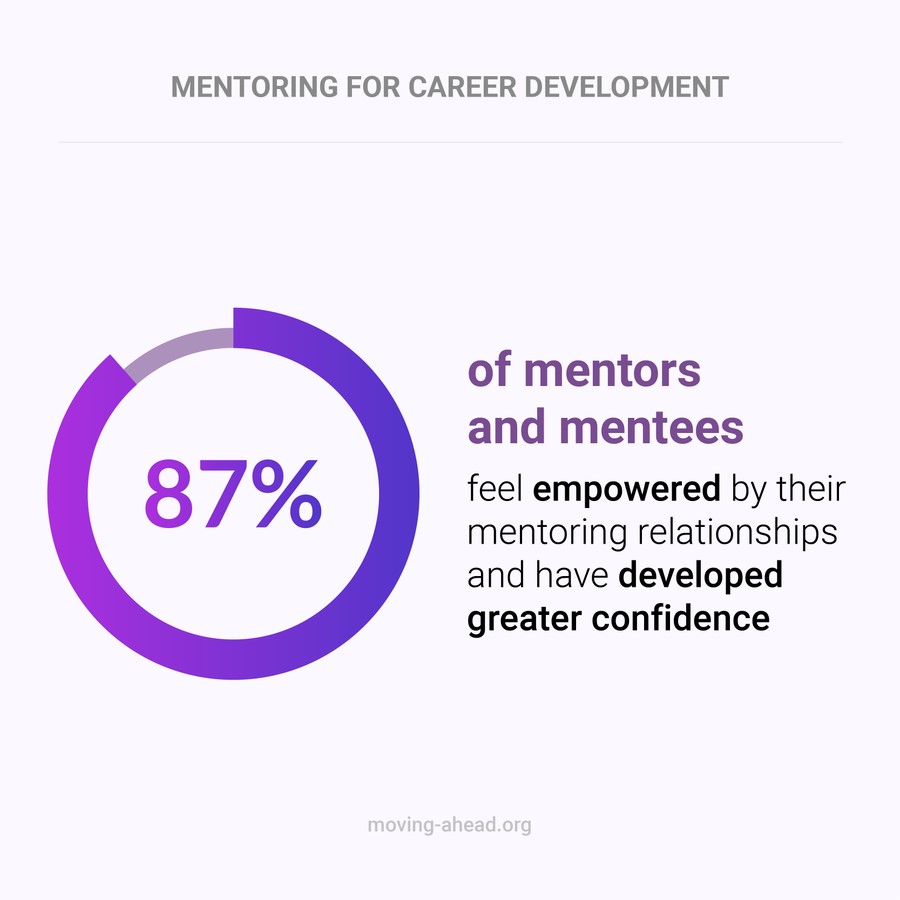How To Get The Most Out Of Your Doctorate Mentor?
26th December 2023

While pursuing a Doctorate program, having a mentor can be a valuable addition that can help you in a significant way to shape your career path. Mentors also provide valuable guidance that can help to take the right career decisions.
According to 100 mentors and moving-ahead.org, 87% of the mentors and mentees feel empowered by their mentorship relationship which builds tremendous trust and confidence within each other.

However, to make the most of any mentoring relationship, it is very important to navigate it effectively. In this blog post, we will be exploring some awesome tips to get the most out of your doctorate mentor and to learn as much as you can.
Before moving to the topic, can we ask you a question? Do you follow us on Social Media? We regularly share upgraded educational content, tips, feedback, and more. Check us out by clicking the profiles here - Facebook / Twitter / LinkedIn / Pinterest / Instagram / YouTube
So, without any further delay, let’s get started.
1. Set Clear Expectations
Before even starting to look for a mentor or form a relationship with a mentor, it is very crucial for professional Doctorate holders or aspirers to set clear and reasonable expectations with the mentor. Start with a small beginning like having a 30-minute coffee meeting rather than a long hour meeting every week to discuss career prospects and to know each other. After meeting, a few times the relationship of mentors and mentees eventually evolves and you can discuss how to utilize how to make spent time productive.
2. Establish A Schedule
Once you have formed a bond with your mentor, you can ask your mentor if they are willing or open for regularly scheduled meetings at any common time in which you both can meet. By scheduling a proper time for a meeting, you can further avoid the need to ask any query regularly, which could frustrate you both. Additionally, having proper scheduling meetings can ensure you form a strong and productive relationship with your mentor.
3. Make Your Preparation
One of the best ways to make the most of mentoring sessions is essential if to do your early preparation. Prepare a list of questions by pondering in advance and you can also consider sending a preview of the topics that you have thought you would like to discuss in the meeting via email. This will also help your mentor to prepare the necessary support and guidance that you’re seeking.
4. Practice Active Listening
One of the most important aspects to learn the most from your mentorship sessions is actively listening to your mentor what they are saying and engaging in a meaningful conversation. One of the signs of active listening is asking follow-up questions which means you’re genuinely curious and eager to learn by seeing your hunger for learning your mentor will enthusiastically provide valuable insights to you. Additionally, you can also take notes, so that you can go back to refresh that particular discussion again.
5. Share Your Issue Openly
To get the proper guidance and support related to your career future dilemma, your Doctorate research, or any other topic you must be open to sharing your concerns and emotions without the fear of being judged by your mentor. The more you open to discuss, the better your mentor can understand your concern and provide the necessary solutions for it.
6. Ask For Unbiased Feedback
One of the benefits of having a mentor is you have the opportunity to get constant feedback from your mentor. So, make the most of this opportunity ask for unbiased feedback, and be open to receiving constructive feedback. After receiving feedback, start to work on it to improve yourself.
7. Network and Expand Your Connections
You can take the opportunity of your connection with your mentor’s professional connections in your field. You can consider attending conferences and workshops with your mentors and introducing yourself to other professionals who will help you to build a strong network and you will also get to learn new things as well.
8. Show Gratitude
Not every professional doctorate holder has the opportunity of having a mentor. So, it’s very necessary to show your gratitude towards your mentor if you have one because they dedicate their time and guidance for your betterment. You can show a simple gesture of gratitude by saying ‘Thank you” which can go a long way to show how much grateful you are for your mentor’s support and hard work. You can also consider writing a handwritten letter to express your gratitude in it.
9. Share Your Knowledge Forward
Once you have become a professional Doctorate holder and gained all the possible experience there is then it’s time for you to share your knowledge by mentoring others. Sharing your knowledge further, you will get the satisfaction of giving it back to the academic community by helping future scholars.
Mentors Can Help You To Achieve Success In Your Professional Career
Not every professional Doctorate in education aspirer has the opportunity to have a mentor, but if you do have then you must how to make the most of your mentoring relationship. In this blog post, we have shared some of the awesome tips that will help you to get the guidance and support from your mentor to become a successful professional Doctorate holder.
Lastly, remember that your mentorship experience can be a transformative journey that shapes your career and leaves a lasting impact.
We believe education should be accessible for everyone. That’s why we don’t charge for our blogs. Find the right course that will help you in your career with us, contact us at - 1800-212-6400. You can mail us at act@asiancollegeofteachers.com
Written By: Rimpa Ghosh